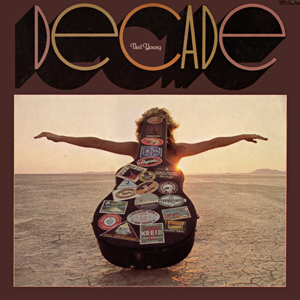
Decade is a compilation album by Canadian–American musician Neil Young, originally released in 1977 as a triple album and later issued on two compact discs. It contains 35 of Young's songs recorded between 1966 and 1976, among them five tracks that had been unreleased up to that point. It peaked at No. 43 on the Billboard Top Pop Albums chart, and was certified platinum by the RIAA in 1986.
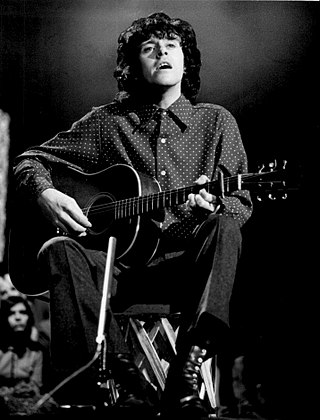
Donovan Phillips Leitch, known mononymously as Donovan, is a Scottish musician, songwriter and record producer. He developed an eclectic and distinctive style that blended folk, jazz, pop, psychedelic rock and world music. He has lived in Scotland, Hertfordshire (England), London, California, and—since at least 2008—in County Cork, Ireland, with his family. Emerging from the British folk scene, Donovan reached fame in the United Kingdom in early 1965 with live performances on the pop TV series Ready Steady Go!.

Spirit of the Boogie is the sixth studio album by Kool & the Gang, released in 1975. It can be seen as a follow-up to Wild and Peaceful (1973); the instrumental "Jungle Jazz" uses the same basic rhythm track heard in "Jungle Boogie", but lets the players improvise on their instruments. References to earlier works can be noticed. "Spirit of the Boogie" features Donald Boyce, who was rapping on "Jungle Boogie". Some African influence can be felt, and the band even play in a West-Indian style on "Caribbean Festival", another instrumental track, with once more much room for improvisation.

Little Games is the fourth American album by English rock band the Yardbirds. Recorded and released in 1967, it was their first album recorded after becoming a quartet with Jimmy Page as the sole guitarist and Chris Dreja switching to bass. It was also the only Yardbirds album produced by Mickie Most.
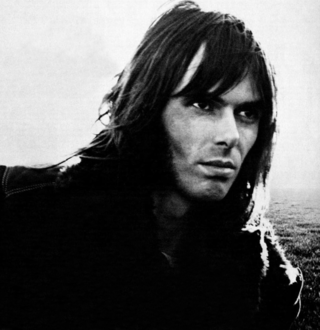
Nicholas Christian Hopkins was an English pianist and organist. He performed on many popular and enduring British and American rock music recordings from the 1960s to the 1990s, most notably on songs recorded by the Rolling Stones, the Kinks, the Who, the Beatles, the Steve Miller Band, Jefferson Airplane, Rod Stewart, George Harrison, John Lennon, Paul McCartney, Ringo Starr, The Hollies, Cat Stevens, Carly Simon, Harry Nilsson, Joe Walsh, Peter Frampton, Jerry Garcia, Jeff Beck, Joe Cocker, Art Garfunkel, Badfinger, Graham Parker, Gary Moore, Quicksilver Messenger Service and Donovan. He is widely considered to be one of the greatest studio pianists in the history of popular rock music.

Mellow Yellow is the fourth album from Scottish singer-songwriter Donovan. It was released in the US in February 1967 (Epic Records LN 24239 / BN 26239, but not released in the UK because of a continuing contractual dispute that also prevented Sunshine Superman from a UK release. In June 1967, a cross-section of both albums was released as Sunshine Superman in the UK. "Mellow Yellow" was the name of Donovan's hit single released the previous November.

Barabajagal is the seventh studio album and eighth album overall from British singer-songwriter Donovan. It was released by Epic Records in the United States on 11 August 1969, but was not released in the United Kingdom because of a continuing contractual dispute that also prevented Sunshine Superman, Mellow Yellow, and The Hurdy Gurdy Man from being released in the UK.

Open Road is the eighth studio album, and ninth overall, from Scottish singer-songwriter Donovan and the debut album from the short-lived band Open Road. While his previous work was composed by his playing solo on acoustic guitar and then recorded with a shifting cast of session musicians, Open Road was Donovan's effort toward writing and recording music as a member of a band.

Live in Japan – Spring Tour 1973 is the twelfth album from Scottish singer-songwriter Donovan. It was only released in Japan in 1973. The album has never been released in either the United States or the United Kingdom.

7-Tease is an album by the Scottish singer-songwriter Donovan. It was released in the US in November 1974 and in the UK in January 1975.

Slow Down World is the thirteenth studio album by Scottish singer/songwriter Donovan, released in the US in May 1976 and the UK on 4 June 1976.
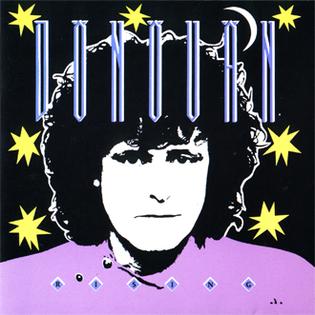
Rising is the third live album, and twentieth album overall, from Scottish singer-songwriter Donovan. It was released on Permanent Records in 1990. The live versions of Donovan's hits guaranteed that Rising would receive a release in both the United States and United Kingdom. Rising was retitled The Classics Live in the United States, 25 Years in Concert in Europe and Atlantis in the UK for marketing reasons. Since the release of Rising, there have been many reissues of the songs from the album under many different titles.

Rising Again is an expanded version of the 1990 live album Rising from Scottish singer-songwriter Donovan. It was released in the UK on 22 May 2001.

"Rock 'n' Roll with Me" is a power ballad written by David Bowie and Warren Peace and recorded in January 1974 that first appeared on Bowie's Diamond Dogs album, supposedly to address the artist's complex relation with his fans. A version recorded during the Diamond Dogs tour in July 1974 was released on the album David Live.
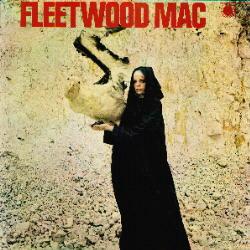
The Pious Bird of Good Omen is a compilation album by the British blues rock band Fleetwood Mac, released in 1969. It consists of their first four non-album UK singles and their B-sides, two other tracks from their previous album Mr. Wonderful, and two tracks by the blues artist Eddie Boyd with backing by members of Fleetwood Mac. These two tracks came from Boyd's album 7936 South Rhodes.

Photograph: The Very Best of Ringo Starr is a career-spanning best-of compilation album by Ringo Starr and is the first such album since the releases of 1975's Blast from Your Past and 1989's Starr Struck: Best of Ringo Starr, Vol. 2. The album was released in the UK on 27 August 2007, and in the US on 28 August.

I Can Stand a Little Rain is the fourth studio album by Joe Cocker, released in August 1974, and considered to be the singer's finest album in that decade.
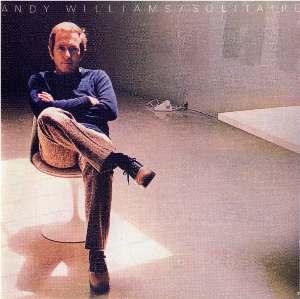
Solitaire is the thirty-first studio album by American pop singer Andy Williams, released in the fall of 1973 by Columbia Records and was an attempt to move away from his formulaic series of recent releases that relied heavily on songs that other artists had made popular.

Cosmic Wheels is the tenth studio album, and eleventh album overall, by Scottish singer-songwriter Donovan. It was released in both the UK and the US in March 1973.

The Best Band in the Land is the third and final studio album of CCS. It was recorded at Abbey Road Studios in London, January to May 1973 and released in September that year. In Australia, the album was titled The Band Played the Boogie.




















